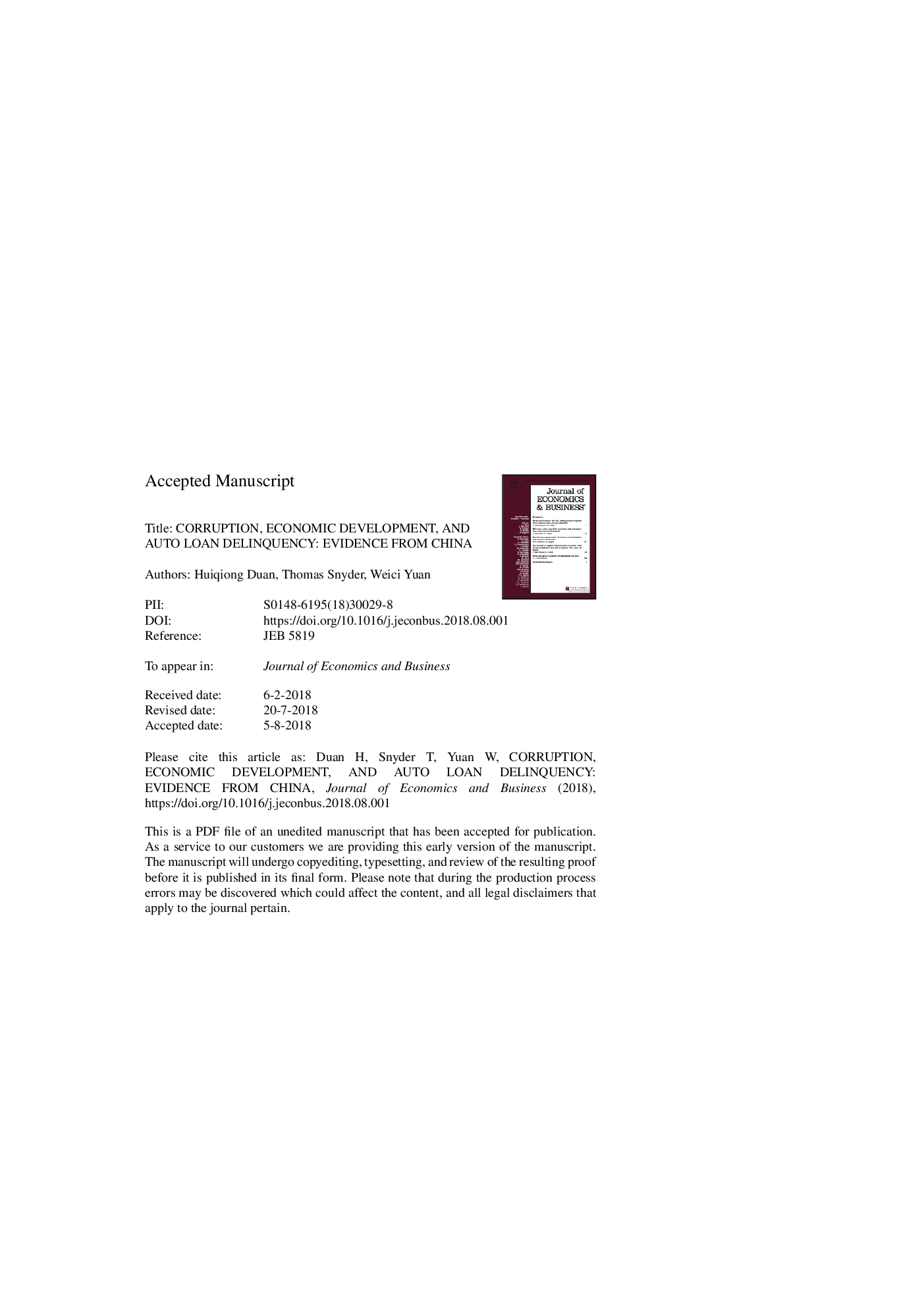| Article ID | Journal | Published Year | Pages | File Type |
|---|---|---|---|---|
| 10226789 | Journal of Economics and Business | 2018 | 25 Pages |
Abstract
We study the predictors of loan delinquency using a unique dataset on auto loans in China. In addition to confirming that demographic characteristics have predictive power for delinquency, we find a strong effect of corruption norms: individuals from provinces with a higher level of corruption accumulate significantly more overdue payments. Our evidence also indicates that better economic development significantly reduces the number of loan delinquencies. We mainly focus on late payments made during the grace period (within 10 days past due), which do not incur a penalty, so borrowers have no financial incentive for a timely payment and their actions should reflect cultural norms. It implies that economic development is positively related to cultural norms. We also observe convergence to the outcome predicted by the grace period: learning the absence of punishment for overdue payment in the first 10 days, borrowers become more delinquency-prone when the loan contracts have been in effect for a longer time.
Related Topics
Social Sciences and Humanities
Business, Management and Accounting
Strategy and Management
Authors
Huiqiong Duan, Thomas Snyder, Weici Yuan,
